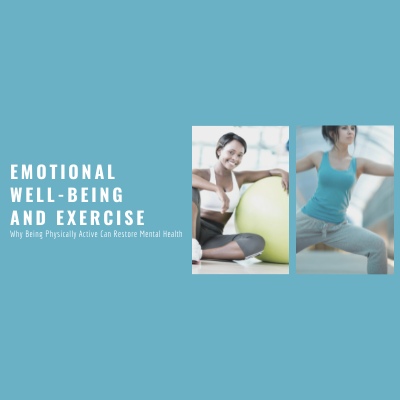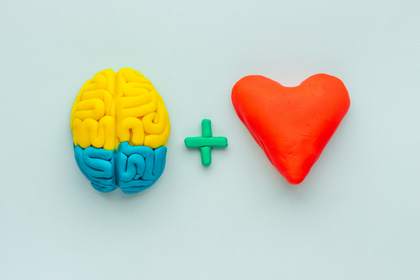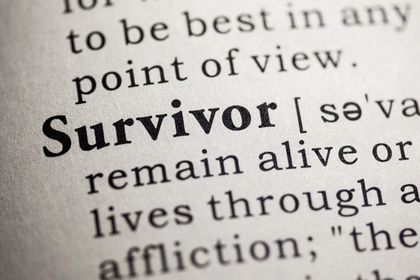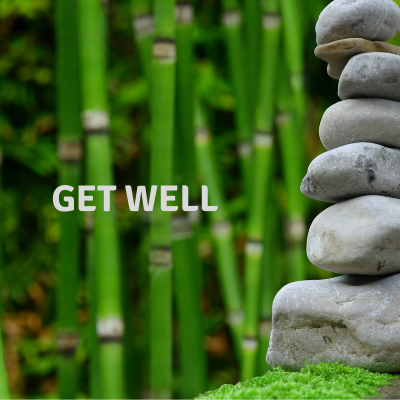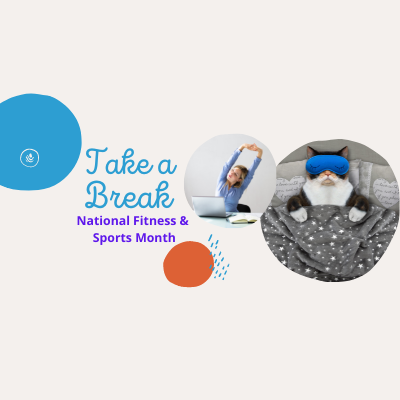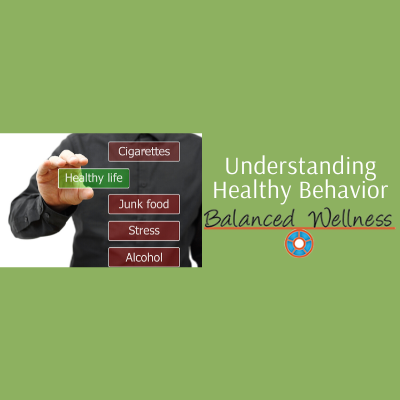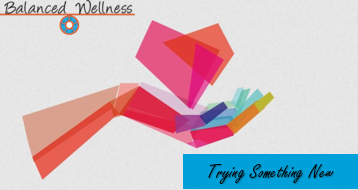Emotional
Our Blog Categories
Mental Health vs. Emotional Well-being
May is Mental Health Awareness Month. National Alliance on Mental Illness (NAMI) launched #More than Enough, their 2023 campaign May 1st.
It is important that all of us recognize mental health as part of our total well-being. In addition to caring for ourselves and taking measures to improve our mental health, we hope you will help raise awareness about mental health. Slow down, listen and connect with others, and seek education for yourself and the community.
moreEmotional Well-being and Exercise: Why Being Physically Active Can Restore Mental Health
We hear all the time that increasing physical activity can significantly improve our mental health… and we’re not here to disagree! However, this month we’re discussing why it’s more important to incorporate planned exercise into your daily routine and evaluate how your emotional well-being transforms when you become increasingly active.
PLUS! Why not take the lessons we learn in the gym back into our daily routine? Building strength and resilience in our body in turn can foster these same characteristics in our approaches to tasks at home and work.
First, the difference between non-exercise activity thermogenesis (NEAT) physical activity and exercise is a critical element of the information we plan on sharing. We’ll let the National Academy of Sports Medicine (NASM) explain what NEAT physical activity is, but we will elaborate on planned exercise and its benefit on emotional well-being.
Second, mental health and emotional well-being are interconnected and constantly in flux. If at any point, your emotional state affects your day-to-day function and you experience any of these symptoms (kindly explained by the Substance Abuse and Mental Health Services Administration), it is crucial you seek professional help. A mental health professional will be better able to help you manage your emotions.
moreToolkit for Mental Health and Emotional Well-being
Updated August 1, 2023
Let’s not forget where we started; mental health is and always has been important to our total health and well-being. The pandemic and changing work environment has brought the topic to the forefront of many individuals and organization’s minds.
moreUnlocking the Power of EAPs and Holistic Wellness
Nurturing total well-being has become a paramount goal for individuals and organizations alike. Since recognizing the importance of emotional, spiritual, environmental, social, and occupational dimensions, a holistic approach to well-being has emerged. In this blog, we will explore the transformative impact of Employee Assistance Programs (EAPs) and highlight the integration of these programs within the framework of each dimension.
more4 Steps to Embracing Emotional Change
Embracing the depth of our emotions is a crucial aspect of personal growth, and it doesn't always have to carry a negative connotation. Rather than suppressing or disregarding our feelings, it is important to acknowledge, understand, and express them as an integral part of our daily lives.
Updated May, 25, 2023.
moreHow to Avoid Waking Up on the Wrong Side of the Bed
We've all had those mornings when we wake up feeling groggy, irritable, and just not quite ourselves. You might have heard someone jokingly ask, "Did you wake up on the wrong side of the bed?" But there might be more truth to that question than we realize. Sleep plays a crucial role in our emotional well-being, and poor quality sleep can have a significant impact on our mood, mental health, and lifestyle behaviors.
Created May 18, 2023.
moreTurning Lemons Into Lemonade - Meet Stephanie!
Chances are most of us have personally known at least one person who has battled breast cancer. Yet, I never grow tired of survivor stories. Despite this, I find it difficult to ask them how they are doing and even more so find it difficult to write this blog. Cancer hits hard… so we need to fight harder. Whether we are personally dealing with cancer or are encouraging others dealing with a diagnosis or post-treatment survival, we must fight back.
moreAddressing Emotional Well-being After the Diagnosis
It’s not something anyone ever wants to hear… a cancer diagnosis. It changes your life – your world perspective, your day-to-day routine, your future plans, your relationships, your work– everything! Common feelings during this experience can include anxiety, distress, and depression. It is critical to recognize this cancer diagnosis as a stressor, as this awareness can empower you to progress in your treatment with a sense of hope.
moreAging to Fulfillment
Valerie Sublett
Men’s Health Month aims to bring attention to four pillars created to help men (and their families) not only live good lives but to thrive now and in the future! The various medical, technological, and ecological advancements made in recent decades have improved our ability to prevent and fight disease, our overall health, and even our desire to live a longer life. The goal isn’t to just see a certain age anymore. It’s about the desire to live active, fulfilling lives to older ages. The four pillars Men’s Health Month focuses on helps to create a plan of action so men AND women are living their best lives for years to come!
AWARENESS
The “awareness” piece is simple, and it creates the foundation for the remaining three pillars.
A decline in health (mental, physical, and/or emotional) is NOT inevitable! You have more control over how you age than you may realize.
The challenge is to pursue that awareness through prevention, education, and relationships. Take action by evaluating where you are, where you want to be, and consider what changes need to be made for you to age to fulfillment.
PREVENTION
The previous blog is perfect to revisit for prevention tips regarding your overall lifestyle – 5 Heart Healthy Habits for Men. By the time we NEED to see the doctor, change our diet due to a diagnosis, exercise more, find ways to reduce stress, and start to make other changes, our bodies and minds have already begun to live in “decline mode.” Prevention comes with being proactive – addressing what we don’t want by living the lifestyle NOW that we DO want to be able to live in the future.
moreFighting Cabin Fever!
A variety of situations may give cause for us to stay home and indoors, not just the spring season with allergies and unpredictable weather, but throughout the year with illness, weather extremes, significant injuries, etc. While having time at home to get things done is beneficial, sometimes even therapeutic, too much time spent unintentionally can lead to something called “cabin fever” – a constellation of symptoms that occurs during seclusion and isolation, whether self-imposed or not. You may experience the following: changes in sleep pattern, decreased motivation, difficulty walking, food cravings, frequent napping, hopelessness, lack of patience, lethargy, sadness or depression, trouble concentrating, etc. None of those sounds fun, so let’s look at strategies to help prevent and address cabin fever.
It is extremely important to note, however, that even though a certified wellness coach through Balanced Wellness can devise a plan to work through these symptoms with you, if any combination of these symptoms is distressing and significantly impacting your daily functions you should potentially seek help from a mental health trained professional. Consider the severity of your symptoms, look at the suggestions we make below, and decide which path is the safest for you to take. Self help and/or medical treatment is OKAY!
moreGet Well
Have you ever googled “quotes about pursuing happiness?” While there are many out there that may inspire you, there is not a single “answer” as to how one becomes happy. Afterall, happiness is not simply achieved. Happiness is about flourishing, living – it is a constant and consistent movement forward. Since the early 1960s, psychologists have been working to broadly and openly define and describe what they believe is a more well-rounded term and ideology than happiness – well-being!
Well-being is about pursuing five components that are intrinsically motivating and contribute to a sense of overall wellbeing, not just momentary happiness. Each of these components allows for personalization and a subjective approach based on you, your personality, your lifestyle, your goals, etc. These five components, also referred to as PERMA, have been linked through positive associations to physical health, vitality, job satisfaction, life satisfaction, and commitment within organizations of various kinds. We mustn’t ignore the mental health aspect of our overall well-being and lifestyle, so let’s continue our discussion from last week on the “other” aspects of wellness.
Positive emotion
moreGet Beyond the Number
What’s the first thing you think about when you consider setting a health goal? For many Americans, the first goal that comes to mind has to do with that number on the scale… and for good reason. Weight can be a clear indicator of one’s risk of illness and disease. The challenge here, however, is that it is not the number that increases the risk, rather the habits that contribute to an increased weight as well as the results of carrying the weight. For example, there are a few specific chronic diseases associated with obesity.
It is the leading risk factor for type-2 diabetes and osteoarthritis and is a major risk factor for heart disease and hypertension. Thirteen different cancers have a causal link to obesity, as well. Our hormones, our cardiovascular health, and how vitamins and minerals are utilized in the body are all impacted by our weight. And like we mentioned above, these chronic diseases are directly influenced by habits, as well as the consequences our bodies experience due to the extra weight. While we at Balanced Wellness encourage you to reach a healthy weight, we hope you have the desire to look at the circumstances influencing that number rather than the number itself.
moreTake a break!
Go Go Go! So much of our world today encourages, almost rewards, a constant “on-the-go” lifestyle. Whether it’s going from one activity to the next or having an all-or-nothing attitude about working out, sports performance, etc., it is almost as if we are rewarded for never taking a break.
But! What if you performed better BECAUSE you took a break?
What if you performed at a higher level BECAUSE you took a break?
Research shows that rest and recovery can actually lead to greater physical, mental, and emotional results. What does this look like, and how can we make it happen?!
Good rest and SLEEP are vital for a healthy lifestyle. Check out the following 10 reasons why good sleep is important:
- Poor sleep is linked to higher body weight. Research shows this to be the case for both adults and children.
- Good sleepers tend to eat fewer calories. Sleep regulates the hormones associated with appetite. Poor sleep affects these hormones, making it more difficult to read hunger and satisfaction cues.
- Good sleep can improve concentration and productivity. It can maximize problem-solving skills and even enhance memory, compared to a lack of sleep which can reduce cognition and memory.
- Good sleep can maximize athletic performance. Greater awareness can also reduce your risk of injury during a workout or recreational activity.
- Poor sleepers have a greater risk of heart disease and stroke. Seven to eight hours of sleep really makes a difference in one’s risk.
- Sleep affects glucose metabolism and type 2 diabetes risk. Healthy adults can develop prediabetes in as few as six days of sleep deprivation.
- Poor sleep is linked to depression. This link goes both ways – those who experience depression have been found to develop sleep disorders and vice versa.
- Sleep improves your immune function. One study, in particular, found that those who slept less than seven hours of sleep were almost three times more likely to develop a cold than those who sleep eight hours a night.
- Poor sleep is linked to increased inflammation. There are even links between poor sleep and inflammatory bowel diseases.
- Sleep affects emotions and social interactions. Recognizing important social cues can affect healthy relationships.
Understanding Healthy Behavior
According to a JAMA article published in September of 2020, COVID-19 created changes in adult alcohol use. Many of us clearly remember the weeks in March as we began to experience the pandemic. According to a Nielsen reportpublished in May, alcohol sales increased 54% for the week ending March 21, 2020. A RAND studyoverall frequency of consumption increased 14% with women representing an increase of 17%. Women also experienced a significant 41% increase in heavy drinking (amount) and also a 39% increase in the Short Inventory of Problems scale, which is indicative of increased alcohol-related problems.
moreThe Heart of the Matter
As we look at reducing the risk of chronic illness during the month of September, it’s important to note that addressing cardiovascular disease is essential. Heart disease is the leading cause of death in the United States, killing one person every 36 seconds (CDC, 2018). Pause and count to 36 seconds–that is an alarming number of people!
Interestingly enough, keeping our physical heart healthy isn’t just about the physical actions we can take such as exercising and eating well. In fact, I would personally warrant that only has some impact on our total heart health. Mindset is important and is a key part of our emotional well-being. We have talked about how all of the dimensions of well-being are integrated, but at the core of our Balanced Wellness model is spirituality. Spiritual well-being can be defined in a variety of ways with many different words, most stemming around the purpose and meaning of life. It can also be expanded to state our goals, values and belief systems, which is why spirituality has such an impact on our health, and is, most certainly, a heart issue. Purpose and beliefs encourage our behaviors as do goals and values.
It is the HEART that is the HUB of our body and our well-being! Ask yourself–Do you value your health and the benefits allowed a healthy person enough to set a firm resolve to eat well, reduce stress, and move? Do you believe you can impact your health? Do you believe strongly in the ‘system’ you use to achieve health? For instance, do you believe that a whole food nutrition plan is beneficial and worth the effort? However, you answer, we encourage you to go for the why. Bring out the 2-year-old in you and continue to ask why until you get deep into what the value is and why are you doing it! To sum it all up, spirituality is a solid foundation to improve your mental health, and mental health is a solid strategy for reducing heart disease. In a recent study, a sense of total well-being was been shown to reduce the risk of developing heart disease by 30%.
moreBuilding A Positive Mindset
Building a Positive Mindset
A positive mindset can change both your physical and mental health in many different ways. This mindset can help build your physical health because you can reduce stress and mood which can help reduce your chance for disease. The “power of positive thinking” is a phrase you may have heard before; it is a great tool that everyone should utilize every day to help improve ourselves in many ways. Here are 7 tips to help you start switching your thinking to a positive mindset today!
moreTry Something New!
- Try Something New!
- Unusual as it may be, the current condition of the United States isn’t something we should let deter us from staying well and healthy. If anything, we should take the time social distancing and staying home is freeing up in our schedule to learn more about ourselves. How do you spend quality time with yourself when you feel stressed about what’s going on outside? We’ve got you!
- Tips and Tricks
- – Join us for a workout on Zoom. Virtual and easy to use, Zoom has provided us a platform to stream a variety of classes. Don’t know what you like? This is perfect for you then! We currently offer 8 different fitness classes throughout the week and also small group and one-on-one coaching. Stay for as long or as little as you like, but enjoy an effective workout from one of our encouraging instructors from the comfort of your own home! Link is in the schedule attached below.
- Challenge: build a workout playlist of your favorite music and fine-tune it ‘til it’s perfect! Play it during class. (You will be muted so no worries!)
- – Cook healthy recipes with new ingredients. Our well-being is enhanced by proper nutrition. Proper nutrition encompasses well-rounded meals– sources of lean protein, healthy whole grains, and colorful fruits and veggies included! With your time at home, make a goal to cook one new recipe per month
- Challenge: with each new recipe, try to incorporate something you haven’t tried before! Source of protein, a vegetable, spices– whatever works!
- – Create a daily schedule just for you. Without structure, your day can fall apart. You don’t get as many work tasks, chores around the house, or as much “you time” done! Creating and abiding by a schedule at home will help you be productive and also dedicate time to you and your well-being.
Stress Management Webinar
Thank you for joining us for this webinar! Click here for your Stress-management MindMap. Please email TerryGehrke@BalancedWellnessKY.com with your strategies for Stress Management.
more

